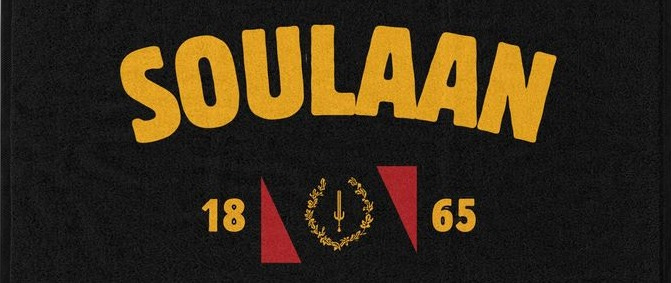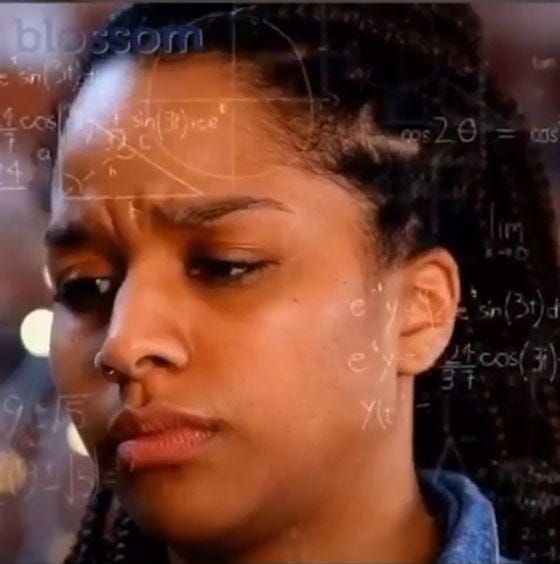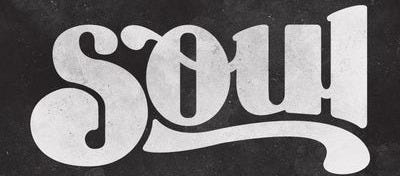I'm Using Soulaan Now, And You Should Too.
Say bye-bye African-American, hello Soulaan. Let's take a look at what the term means and its potential to shine a light on America's largest Black ethnic group.
Imma Use Soulaan, Here’s Why.
In 2021 I moved to London for graduate school. Despite the continual weather depression caused by what is effectively an 8 month winter, I’ve ended up staying for the last three years.
When I first landed in London I cannot hold you, I was SHOCKED at how diverse it was. Don’t get me wrong, I knew the city was multi-cultural to some extent, but uhhh I had NO idea just how diverse it would be. Even crazier to me was that everyone lives together. There are still Turkish specific neighborhoods, Latinx areas, and so on but still, people at least live next to each other and kids go to school together.
I’m used to the setup of US cities where you can go blocks only seeing black faces. I know New York is supposed to be “special”, but I’m not from there and the segregation from redlining is still very much a reality. The point is, London is exceptionally multi-cultural.
If I had known this before coming I probably would have been more prepared for the frequency I was bout to be asked one question and the insinuations it comes with. That question being “Where are you from?”
Usually, when white people ask me this question, they’re just asking if I’m American, so I respond with “I’m American” and we move on. I try to keep my interactions with white Brits short. But if they aren’t white, especially if they’re Black, the likelihood goes up that I will be met with a more extensive series of follow up questions:
“No, but where are you actually from?”
“Where are your parents from?”
“What’s your heritage?”
This used to shock me because…well I thought we were all aware of the slave trade, which did deeply involve (build and set the basis of power for) the US. But fair enough, maybe some people don’t understand the atrocities of slavery specific to the US, so I explain that when the boats left from Africa, they might find themselves in the Caribbean and my ancestors got off at the next stop. That is why my parents, their parents, their parents, and more are from America.
After being asked these damn questions fifty-leven times, I landed on describing my heritage as “descending from slaves brought to the US”. It’s true, that is my heritage, but DAMN it’s a lot more words than just saying African-American or Black American.
Then at the exact time I began confronting this new identity question, I came across the term “Soulaan”. Won’t He do it?! The term meant exactly what I had been describing myself as. Soulaan signifies those who are descendents of enslaved Africans brought to the United States during the transatlantic slave trade. When I say I messed with this term off rip, I mean it. As soon as I heard it, I went into research mode.
Initially, the term was posed as a suggestion on TikTok to consider a word that signifies a specific sense of “Afro-nationalism”. I will never support forms of nationalism no matter how Black it might look. I do not want a Black world modelled off the tactics used to oppress us, especially when Black people justify it with false candy-coated African histories. We was not all kings and queens, my sweet sweet misguided brother. We must be honest about our histories so we can work to imagine and live out a more just reality.
As for Soulaan, the term has evolved past its origin as a misguided suggestion, and we must be careful not to throw the beautiful baby of a term out with the stanky murky bathwater. While it continues to represent the people it was intended for, it has evolved away from being another plot for Black nationalism, to instead function as a simple ethnic identifier based on our cultural connection to the soul (The word uses soul in reference to soul food, soul music, soul brother etc.). The expression is new and the people who originally suggested it have not garnered the power or support to start a movement. Rather we, Soulaan people, have the power to form the term, like clay before it hardens.
What Even Are These?: Race vs. Ethnicity vs. Nationality vs. Cultural Background
Before we go on forming any common understanding of a new term, let’s make sure we’re on the same page about the words that make it up. For this I want to define the terms “race”, “ethnicity”, “nationality”, and “social and cultural background”. LET ME BE CLEAR. These are the definitions of these words that I will be using. If you disagree, argue with your momma who don’t wanna hear it from you anyway. I’m going over these terms so that you understand what I mean when I use them, and if you connect with them, I invite you to use them this way too!
Race is the categorization of people based on their phenotypical, a.k.a. physically visual, presentation. It is a socially constructed idea formed with the transatlantic slave trade. It roots from the categorization of African peoples as “black” and certain Europeans as “white”. Its purpose was to create a distinct difference between people to justify their exploitation under the newly created capitalist system.
Over time, the categorizations within race continue to change; the term has come to include more Europeans into whiteness than originally intended, expanded past the categories of “white” and “black” to include other groups of people, along with other alterations in new messed up ways…everybody’s so creative.
No, race does not make sense. It doesn’t have to make sense to be effective for the people who created it. Disputes between different groups of people have existed far before the transatlantic slave trade, but that difference wasn’t the same as modern day “race” as we know it. Race was created to give groups of scheming greedy European colonizers power over others, and it was successful. Whether you like it or not, race exists and we can’t be fake blind *cue SZA lyrics*.
Ethnicity is created by grouping people together based on a combination of their shared ancestral heritage, location, along with social and cultural background (we’ll get back to what this is). While most often passed through generations, ethnicity does have the potential to change over time, both for individuals and groups of people.
An example of this is happening in the UK right now. When I got to London I ended up meeting a second generation people Black people grappling with whether they wanted to be identified as “Black British”, a newly formed ethnic identity. People who share the same background may not all identify with the term for a plethora of social and political reasons, but the category is there.
Ethnicity is similar to race because it too is a social construct, meaning it ain’t universal law; people continue making it up. But ethnicity sits differently from race because it’s partially self-selected, whereas race is based solely off how you are perceived by others.
Nationality is based on where you were born and the passport you hold. In its simplest form, you’re born in a country, they give you a passport and that’s your nationality. I was born in the USA and have an American passport. I'm American (America identifies two huge continents, but for ease and common understanding, I’ll use it to mean “from the USA”).
For others it’s not so straightforward. Consider America’s colonies (you may know them by other names but let’s be forreal and call them what they are). If you’re from Puerto Rico, Guam, or Hawaii your nationality may be more complicated. This is when self-identification comes in. On a form you’ll put down one nationality, but in conversation you say something else. That’s because similar to race and ethnicity, nations have been constructed over time. There was a world before America, England, Ghana or China. These places aren’t as concrete as their borders try’n trick you to believe.
Last but not least we have social and cultural background. This is formed through aspects like common language, religion, values, or shared experiences. Remember, social and cultural background is ONE part of ethnicity. It is possible to share a social and cultural background with someone who you have no shared heritage with. Think interracial adoption or moving somewhere and you the only ones who ain’t from there. You gone participate in the space around you, eat the food, assimilate to/grow up with the practices and you’ll probably end up identifying with it in some way
Don’t Call Me African-American, I’m Soulaan
Right, now that we’re on the same page about all these, let’s use that. I will indeed be using Soulaan as a replacement for African-American. The latter term just don’t do it for me. It was essentially created to mean the same thing but has a few inadequacies, hence why it’s getting CHOPPED.
The term “African-American” has technically been around since the mid 1800s, but was really only popularized by Rev. Jesse Jackson in the late 1980s. This was based on the remnants of a push from the Pan-African movement that centered Africa in the cultural heritage of people whose ancestors had been displaced from the continent.
Aside from the fact that “African-American” was being generally recognized just as an influx of African people were migrating to the United States, which causes a diaspora war at least twice a year, there’s a historical reason why this Pan-African logic feels…lacking.
The reality of Soulaan people is that there have been centuries of time and an ocean’s worth of distance between African “homelands” and the people whose ancestors were kidnapped from it. On top of that, the indigenous groups that were already on “American” land had a lot to teach us about the unfamiliar space and spiritual practices associated with it. Not to mention many Soulaan people have Indigenous “American” ancestry as well.
Culturally speaking, the enslaved laborers were stripped of their identities by wicked enslavers. This had a lot to do with the enslavers figuring out pretty quickly that slave led uprisings mostly involved people who had just been brought to the Americas and had recently known freedom. To prevent this from happening, the US slowed down their participation in the slave trade and chose to internally breed enslaved people so they would have a work force that had never tasted freedom before.
Disgusting as that is, it had another effect. This forced the cultivation of new cultural practices amongst a collection of people from different origins. They would create new universal understandings for themselves. Colored with African tendencies toward rhythm, collectivity, speech and spirituality mixed with gained knowledge of the land and food sources from the indigenous, my people made shimmering diamonds under the pressure of a brutally violent environment (and continue to do so to this day might I add).
I’ll give on thing to the Pan-African push for “African-American”, I will never stop thanking my ancestors who lived and died on the African continent. However, I am just as grateful for the ones who are indigenous to the “Americas”, the ones who were taken from Africa, the ones who couldn’t imagine what Africa even looked like (I’m still working on how to approach them European muh-fuckers I got). Soulaan pays homage to this slow brew of a new ethnic group in its entirety.
…But I’m still Black American Though.
You CAN still call me Black American. Being Black American is the racialized understanding of my American identity, whereas Soulaan points to my ethnicity. I ain’t gotta “claim” my Blackness, it just is what it is. Like I explained in the definition of race, this is an identity that has been placed on me from how I look, not a shared cultural experience.
Black Americans encompass far more than just Soulaan people. Caribbean, Latinx, African, and Melanesian people from the US are all Black Americans.
Soulaan people are Black people…mostly. There can be people who identify as Soulaan but are not visibly Black, but I’ll save that for another article (look out for a piece on my opinion of “white passing” as a concept in the present day).
There are times when it makes sense for me to identify with my Blackness and other times when it makes more sense for me to identify with being Soulaan. We gots to be fluid like the world around us, otherwise we’ll be left behind and dragging people with us.
Let’s Not Be Anti-Immigrant Wit It
Soulaan speaks to me. It connects the dots presently in a way that just makes sense. America has worked to make Soulaan culture synonymous with “American” culture as a means to create soft power and continue making money off of Black people’s bodies. No more, let’s call a spade a spade. Sure, Americans created milly rocking, gospel music, cornbread, rap, streetwear…but I feel like we should point to the same specific group of Americans having created all of those things. Soulaan people are the common link.
Don’t get it twisted though. The American government <3 oppressing all Black people. Whenever it can push Black immigrants to the margins by grouping them in with Soulaan people the country takes the opportunity. Lucky for us, as a result the entire African diaspora have their fingerprints all over Black American culture. Hip-hop, breaking, grillz, political activism and so much more show we come from a common place, be it centuries ago. We might make the potions differently, but the magic works just the same.
Soulaan should not be a term utilized to exclude people of different African-diasporic identities from spaces where we make up the majority. They are being thrown into the FIRE of America. That ain’t no joke. No place has capitalized off of divide and conquer quite like the good ole US of A. Having experienced it first hand, we should work to recognize that and not pass it onto our Black siblings. Soulaan should only be used as a specification making the existence of a radiant group of people, created through the violence needed to feed the greed of others, clear. It should not be used to aid the US in more violence, only to recognize what has previously thrived with no proper name.
Let us choose to name ourselves together, as a group of people that are distinct and still internally diverse. Using Soulaan is not uselessly creating some new identity, it is a crowning in the ceremony of recognition. Ion need a name to know who my people are, but ain’t it nice to be called in recognition of our collective beauty?
Thank you for reading my post! If you enjoyed it, here are some others you may also enjoy:











uhhh what a beautiful readdd. i’m loving the parallels in claiming this identity for yourself as a ceremonial thing similar to some African practices of naming ceremonies. it is beautiful to have your community know and bless your name!!! ❤️🔥
Loved this! TikTok also introduced me to Soulaan and the emerging language of Soulaani and “tutting” I believe.
Being able to name ourselves in this world is so important and it’s just for US.
I also appreciated your section at the end of not using it to exclude or created guarded tribalism apart from the Black diasporas present in the country. Instead it’s about creating distinction and that feels so powerful.
I’m not Soulaan but I fully affirm my diaspora siblings in solidifying this identity 🫶🏾